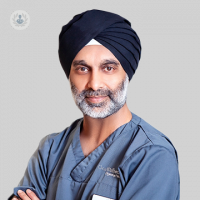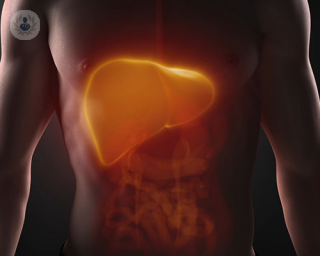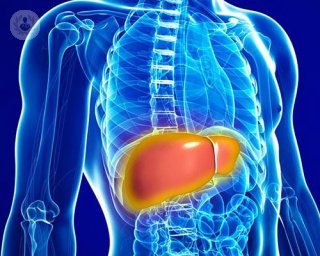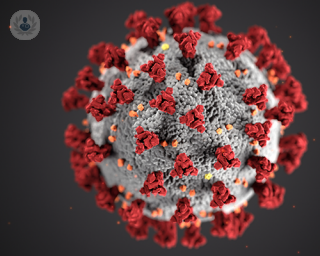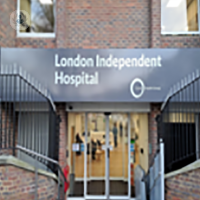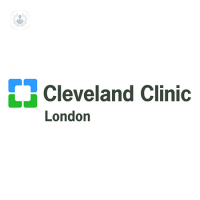Liver disease
Dr Devinder Bansi - Gastroenterology
Created on: 11-13-2012
Updated on: 04-27-2023
Edited by: Lauren Dempsey
What is liver disease?
Hepatic or liver diseases are those which affect the liver tissue and disrupt the liver function. Loss of liver function can greatly impact the body. There are many different types of liver diseases that have various causes such as infections, genetic conditions, or substance misuse. Liver diseases can lead to more serious complications, that can be life threatening.
What is the liver?
The liver is the second largest organ, roughly the size of a football, after the skin. It is located on the right side of the abdomen, just under the rib cage. The liver separates the nutrients and the waste after they are absorbed into the blood stream after digestion. The nutrients are then digested by the liver and the toxins removed. The liver also produces bill which helps digestion and removal of toxins.
What are the symptoms of liver diseases?
Symptoms don’t tend to appear until the liver is quite damaged, and the most common ones are:
- nausea and dizziness, which can lead to vomiting
- intense abdominal pain
- jaundice (yellowing of the skin or eyes due to high levels of bilirubin in the blood)
- itchy skin
- fatigue
- bruising and bleeding easily
- changes in the colour of the urine or stool
- limb swelling
What causes liver disease?
There are different things that can affect the liver, the main causes of liver disease are:
- Infection: most commonly caused by hepatitis viruses, can result in liver inflammation and reduced function.
- Autoimmune diseases: can affect the liver, such as autoimmune hepatitis or certain types of cholangitis like PBC and PSC.
- Genes: inherited from parents can contribute to the build-up of substances in the liver, like hemochromatosis or Wilson’s disease.
- Cancer: mostly caused by cancer that has spread from other parts of the body, like the lungs, colon, or breasts. Primary liver cancers include cancer of the liver or bile duct.
- Non-cancerous growths: like liver adenoma.
Other causes include:
- alcohol abuse
- non-alcoholic fatty liver disease, caused by the accumulation of fat in the liver
- certain medications
- certain herbal compounds
Who is at risk of having liver disease?
There are different risk factors that increase the risk of developing liver disease, some include:
- excessive alcohol consumption
- diabetes
- obesity
- family history
- exposure to body fluid of other people, either through unprotected sex or sharing a needle
- prolonged exposure to chemical products
- blood transfusion prior to 1992
- tattoos and piercings done in unregulated places
When should I see a doctor?
If the previosuly mentioed symptoms last a long time, or you experience abdominal pain so severe that you can’t stay still, you should seek medical attention.

How are liver diseases diagnosed?
Liver diseases don’t tend to have noticable symptoms, and the patient quite often only finds out that they have a problem when they are having tests for something else. Some of the tests are used to detect and diagnose liver issues include:
- Liver biopsy: a small needle is used to get a small sample of tissue to check for potential diseases.
- CT scan: three-dimensional imaging of the liver, to check for anomalies
- Endoscopic retrograde cholangiopancreatography: is a technique that combines the use of endoscopy and fluoroscopy to check for any bile duct obstructions.
- Ultrasound: to check the liver.
- Blood tests: are used to measure different substances in the blood.
- Fibroscan: a test that checks for hepatic fibrosis.
How are liver diseases treated?
Depending on the severity and cause of the liver disease, the most suitable treatment will be selected. Different treatment options include:
- Life-style changes: such as losing weight, limiting alcohol, reducing fat intake, and increasing fibre can also help to improve the symptoms.
- Medications: can treat the symptoms caused by certain infections or autoimmune diseases.
- Ablation: heat is applied to the tissue.
- Chemoembolisation: is recommended for symptomatic patients who have unrespectable carcinoma and who have a tumour that is too big to be treated with radiofrequency.
- Surgical resection: is carried out on patients with single, asymptomatic tumours and who have good liver function.
- Liver transplant: in many cases this is the only option for patients with advanced liver disease.
Certain liver diseases are treated in particular ways:
- Liver cancer: can be treated in different ways, depending on the tumour and the patient’s health.
- Hepatitis: There isn’t a specific treatment for hepatitis A, and it will normally pass on its own within a couple of months. Patients are recommended to eat less fat, avoid alcohol consumption, and rest. The recommendations for hepatitis B are similar to that of A, but there are also some medications that can keep the virus under control for many years. Treatment for hepatitis C tends to be a course of medication for between 30 to 48 weeks.
- Fatty liver: in cases of non-alcoholic fatty liver the patient is recommended to lose weight and ensure they have a balanced diet. If it is caused by medications, you should stop taking the medication. For alcohol-related liver disease, you are advised to stop drinking alcohol.
Can liver diseases be prevented?
Preventative measures to protect yourself from liver diseases include:
- Moderate consumption of alcohol
- Maintain a healthy weight
- Exercise regularly
- Avoid foods high in trans fats and high-fructose corn syrup
- Eat less red meat
- Get vaccinated against hepatitis viruses
- Take recommended doses of medication
- Avoid contact with other people’s bodily fluid
- Protect yourself against chemicals by wearing masks or gloves
- Practise safe sex
- Chose regulated tattoo and piercing shops
- Don’t share needles
What specialist treats liver disease?
Gastroenterologists and hepatologists (who specialise in the liver and conditions affecting it) can treat liver disease, although internal medicine specialists can also be consulted.
What is the prognosis of liver disease?
The main thing to note about liver diseases is that the liver is quite a resilient organ which can recover from smaller ailments and even function with only part of it being healthy. If treated early, and the correct lifestyle changes are made, the prognosis is good.
What complications can arise from liver disease?
Liver diseases damage the liver, and cause scarring, a condition called cirrhosis. The scarred tissue replaces he healthy tissue, reducing the functionality of liver. There is no cure for cirrhosis, however there are certain steps that can be taken to slow and relieve symptoms. If left untreated, it may progress to liver failure, which is a life-threatening disease. Certain liver diseases can increase the risk of developing liver cancer.
